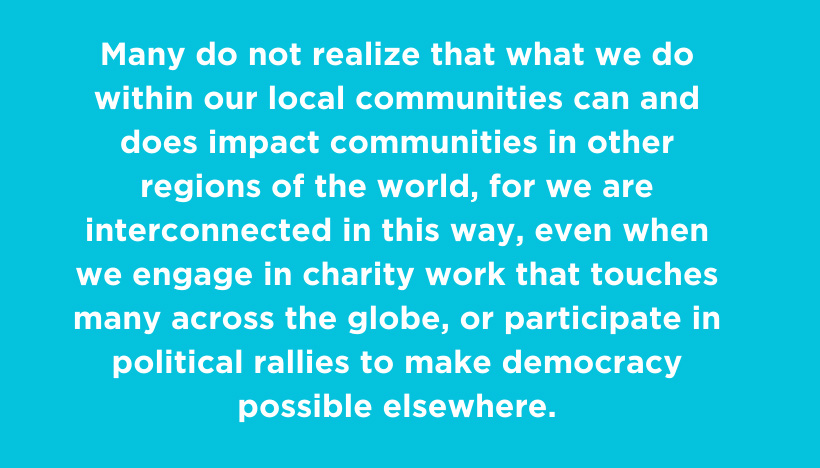This summer we’re revisiting some popular past posts with themes of continuing relevance. The following post was contributed by NCTE member Vivian Yenika-Agbaw, and was originally published on July 4, 2017, as part of an ongoing monthly series from the NCTE Standing Committee on Global Citizenship.
Global Citizenship “is a way of living that recognises our world is an increasingly complex web of connections and interdependencies. One in which our choices and actions may have repercussion for people and communities locally, nationally or internationally” (Ideas for Global Citizenship).
This concept is of particular interest to us as we celebrate our nation’s independence on the Fourth of July. It allows us to ponder how our ancestors had managed to secure our freedom as a nation from the British, and how we had to wrestle with the contradictory content of our Constitution that celebrates the right to be free while still holding others in bondage.
Therefore, we should take this time to contemplate deeply what it means to be an American citizen, and who should be considered an American. As we reflect on this nationalistic notion of citizenship, we should also consider engaging in dialogues of what it means to be a global citizen, especially in a world where leaders are constantly rethinking physical boundaries in order to hold tight to their national identities, and the tension such nationalistic views might create. In so doing, they undermine major aspects of our collective humanity that allow us to cultivate a nurturing world for everyone.
Many do not realize that what we do within our local communities can and does impact communities in other regions of the world, for we are interconnected in this way, even when we engage in charity work that touches many across the globe, or participate in political rallies to make democracy possible elsewhere.
Ronald C. Israel, co-founder of the Global Citizens’ Initiative, observes that,
Most of us on the path to global citizenship are still somewhere at the beginning of our journey. Our eyes have been opened and our consciousness raised. Instinctively, we feel a connection with others around the world yet we lack the adequate tools, resources, and support to act on our vision. Our ways of thinking and being are still colored by the trapping of old allegiances and ways of seeing things that no longer are as valid as they used to be. There is a longing to pull back the veil that keeps us from more clearly seeing the world as a whole and finding more sustainable ways of connecting with those who share our common humanity.
If fathoming how one can be an American citizen and yet be able to perceive oneself as a global citizen may seem challenging, perhaps we should start by examining how we serve our local communities on a regular basis.
Community Services: Local and Global Connections
Many educators are already engaged in practices that impact global communities and reflect their global citizenry even if they are not aware. At a spring 2017 professional development school conference in State College, PA, I attended a session where a teacher presented about a partnership with a school in Africa where they collect books and send them to students. This session was of particular interest to me because I know firsthand how difficult it is for schoolteachers in several public schools across the continent to find basic educational resources for their classrooms.
Also, having served as a member of the Children’s Africana Book Awards committee, I am also privy to book publication initiatives on topics such as The Water Project.
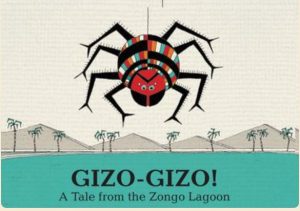 One such publication is a picture book, Gizo-Gizo, on the Zongo Story Project that emerged from a partnership between Emily Williamson and John Schaidler from Minneapolis and the Hassaniyya Quranic School in Ghana. The back matter notes:
One such publication is a picture book, Gizo-Gizo, on the Zongo Story Project that emerged from a partnership between Emily Williamson and John Schaidler from Minneapolis and the Hassaniyya Quranic School in Ghana. The back matter notes:
Working closely with local teachers, Emily Williamson carried out a series of educational workshops at [the school] to teach students about local water and environmental concerns. . . . Building on previous work at his children’s schools in Minneapolis and New York City, John [Schaidler] spent the summers . . . in the remote village of Humjibre in Ghana’s Western District.
For more on this, check out www.zongostoryproject.com. The water problem is local to that specific community, but the solution takes a collective effort that includes a global initiative involving communities from two continents. This is one way we connect at the human level.
Several picture books have documented these types of global partnerships.
Environment
 Where the Forest Meets the Sea by Jeannie Baker
Where the Forest Meets the Sea by Jeannie Baker
One Plastic Bag: Isatou Ceesay and the Recycling Women of the Gambia by Miranda Paul; Illustrated by Elizabeth Zunon
The Water Princess by Georgie Badiel and Susan Verde; illustrated by Peter H. Reynolds
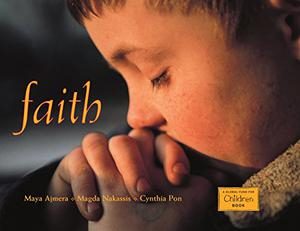 Religious Diversity
Religious Diversity
Faith by Maya Ajmera, Cynthia Pon, and Magda Nakassis
Sacred Places by Philemon Sturges; illustrated by Giles Laroche
Refugees
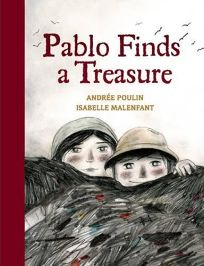 The Red Pencil by Andrea Davis Pinkney; illustrated by Shane W. Evans
The Red Pencil by Andrea Davis Pinkney; illustrated by Shane W. Evans
Pablo Finds a Treasure by Andrée Poulin; illustrated by Isabelle Malenfant
Education
For the Right to Learn by Rebecca Langston-George; illustrated by Janna Bock
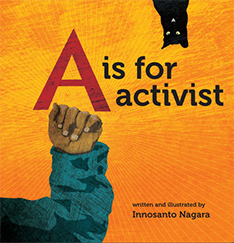 Activism
Activism
Counting on Community by Innosanto Nagara
A is for Activist by Innosanto Nagara
More Global Citizenship Resources
Worlds of Words: Building bridges across global cultures through children’s and adolescent literature
Africa Access: Links to a variety of resources on topics related to the continent of Africa
Teaching Good Citizenship’s Five Themes, from Education World: A focus on the five basic themes of good citizenship (honesty, compassion, respect, responsibility, and courage)
Picture Books about Citizenship
Digital Citizenship: Explores the “9 Key Ps” of digital citizenship
Seven strategies to get children talking and thinking about digital citizenship
Teens and Digital Citizenship: Responsible digital citizenship can help your child have a safer and more satisfying experience online.
OXFAM’s guide for global citizenship
A free lesson plan on a global citizenship workshop
Work Cited
Israel, Roland (2012). “What Does It Mean to be a Global Citizen?” Kosmos: Journal for Global Transformation. http://www.kosmosjournal.org/article/what-does-it-mean-to-be-a-global-citizen/ Accessed: June 22, 2017.
 Vivian Yenika-Agbaw is professor of literature and literacy in the Department of Curriculum and Instruction at Penn State University. She publishes and presents primarily on topics related to issues of social justice and the representation of populations that have been historically marginalized and under-represented in youth texts and culture (with particular concern toward race, class, gender, and dis/abilities). Her work has appeared in a variety of journals and she is is currently a co-editor of the Journal of Children’s Literature housed by the Children’s Literature Assembly of the NCTE. She has also published many books, and is a contributor to the new NCTE book Reading and Teaching with Diverse Nonfiction Children’s Books: Representations and Possibilities (forthcoming in July 2021).
Vivian Yenika-Agbaw is professor of literature and literacy in the Department of Curriculum and Instruction at Penn State University. She publishes and presents primarily on topics related to issues of social justice and the representation of populations that have been historically marginalized and under-represented in youth texts and culture (with particular concern toward race, class, gender, and dis/abilities). Her work has appeared in a variety of journals and she is is currently a co-editor of the Journal of Children’s Literature housed by the Children’s Literature Assembly of the NCTE. She has also published many books, and is a contributor to the new NCTE book Reading and Teaching with Diverse Nonfiction Children’s Books: Representations and Possibilities (forthcoming in July 2021).
It is the policy of NCTE in all publications, including the Literacy & NCTE blog, to provide a forum for the open discussion of ideas concerning the content and the teaching of English and the language arts. Publicity accorded to any particular point of view does not imply endorsement by the Executive Committee, the Board of Directors, the staff, or the membership at large, except in announcements of policy, where such endorsement is clearly specified.

